Latest News
US think tank calls for revised counterterrorism strategy amid growing concerns
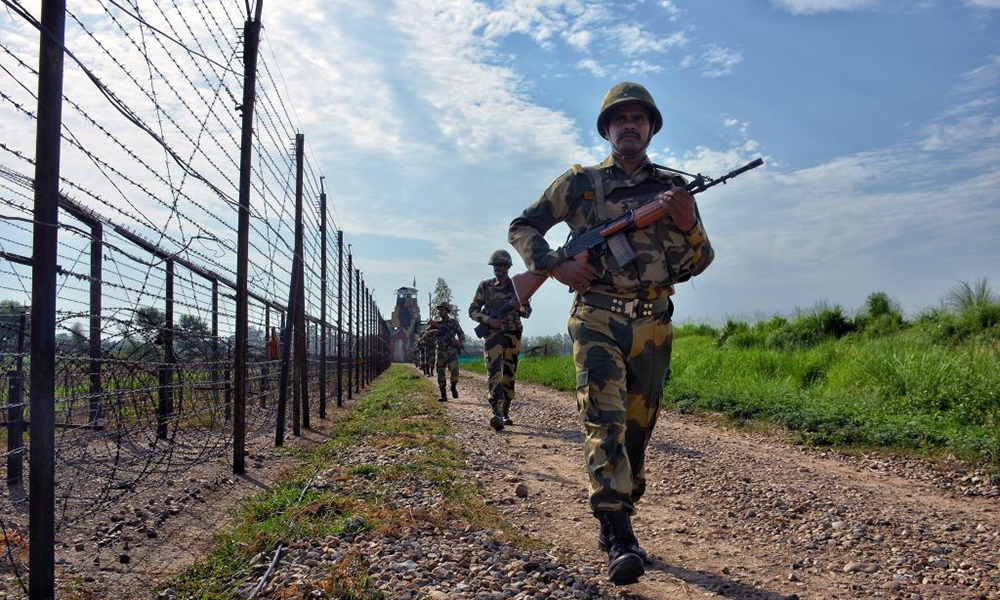
The United States Institute of Peace (USIP) on Tuesday issued a report by the Senior Study Group on Counterterrorism in Afghanistan and Pakistan and highlighted the urgent need to recalibrate the US counterterrorism strategy amid growing strategic competition with China and the ongoing tensions between India and Pakistan.
The USIP report argues that counterterrorism should not be perceived as a distraction from strategic competition but rather as a crucial component in protecting the strategic agenda.
Terrorist groups in Afghanistan and Pakistan still possess the intent and growing capability to target the US and its interests, the report noted, adding that a successful terrorist attack would not only result in tragic loss of lives but also divert resources and attention from strategic competition, undermining America’s credibility and alliances.
In addition, the report stated terrorist attacks originating from the region could spark dangerous regional crises, particularly between India and Pakistan, both nuclear-armed states.
It also stated that the US withdrawal from Afghanistan has emboldened terrorist groups, providing them with opportunities to regroup and collaborate.
ISIS-K (Daesh), for instance, presents a growing threat with a reach beyond the immediate region, while the Tehreek-e-Taliban Pakistan (TTP) has re-emerged as a significant regional security threat, the report read.
The USIP study group meanwhile suggested the Islamic Emirate need to be pressurized “to mitigate terrorist threats while maintaining communication channels for counterterrorism exchanges rather than adopting a cooperative approach with open-ended incentives or a pressure campaign that isolates the Taliban (IEA) entirely.”
The report also suggests increasing military and intelligence resources dedicated to counterterrorism in Afghanistan and Pakistan. This includes improving intelligence, surveillance, and reconnaissance (ISR) capabilities and expanding the US Department of State’s Rewards for Justice program.
The report also emphasizes the need for greater transparency in legal authorities for counterterrorism operations, ensuring actions are justified and minimizing civilian harm. This involves targeting terrorist groups planning attacks against the US and employing cyber operations to disrupt their communications.
Another suggestion was the need for enhanced counterterrorism-specific security assistance and intelligence to Pakistan.
This assistance aims to “reduce the TTP’s threat as well as to obtain Pakistani assistance on top US counterterrorism concerns, secure long-term airspace access for operations in Afghanistan, and leverage reliable access in Pakistan in the event of a terrorist attack contingency.”
The report also highlights the importance of improving preparedness for terrorist attacks in the US homeland and abroad, especially in South Asia. This includes enhancing intelligence collection and analysis, providing travel warnings, and securing emergency military operations bases in Central Asia and Pakistan.
Latest News
Afghanistan-Iran-Europe railway corridor activated

The Iranian Embassy in Kabul announced on Thursday that the Afghanistan-Iran-Europe railway corridor has become operational.
In a statement, the embassy said the first export shipment from Afghanistan has started its journey through the Afghanistan-Iran railway corridor to Turkey and Europe.
The corridor was activated with the presence of the Iranian Consul General in Herat and the governor of the province, the statement read.
The statement added that the activation of this corridor, with Iran’s cooperation, will contribute to the improvement of Afghanistan’s economy.
Latest News
Amnesty international urges Pakistan to halt Afghan deportations
Amnesty International said that all Afghan nationals are required to leave the cities of Islamabad and Rawalpindi by 31 March
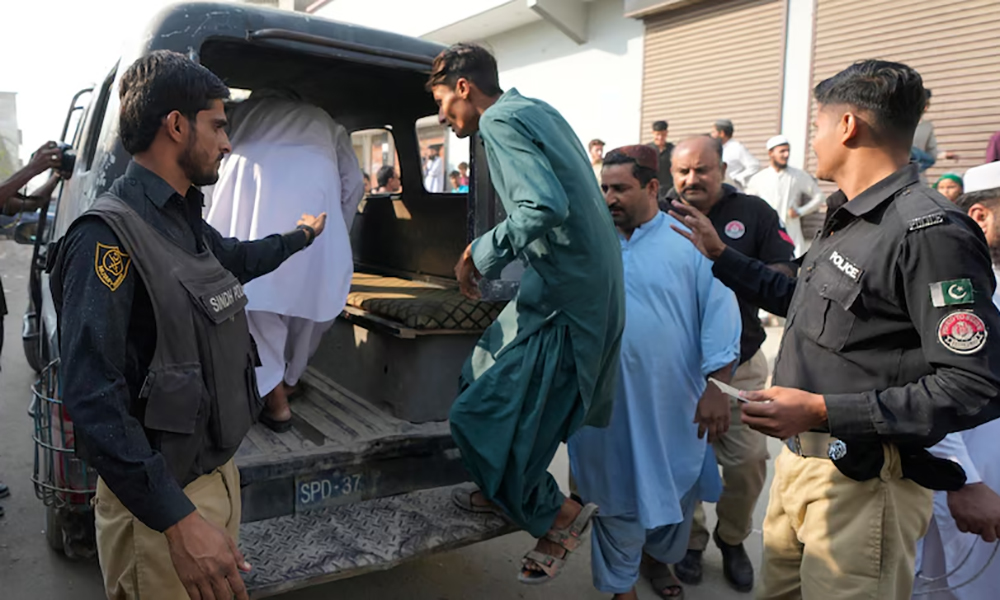
Amnesty International on Wednesday called on Pakistan to immediately withdraw its “Illegal Foreigners Repatriation Plan”, which primarily targets Afghan refugees, ahead of the authorities’ 31 March deadline.
Pakistani government has asked all “illegal foreigners” and Afghan Citizen Card holders to leave the country before March 31, warning they would otherwise be deported from April 1.
Amnesty International said that all Afghan nationals are required to leave the cities of Islamabad and Rawalpindi by 31 March
It said that “arbitrarily and forcibly expelling Afghan nationals, including refugees and asylum seekers, will only add to their plight”.
“The Pakistani government’s unyielding and cruel deadline, which is less than a week away, to remove Afghan refugees and asylum seekers from two major cities, resulting in the deportation of many at risk, shows little respect for international human rights law, particularly the principle of non-refoulement,” said Isabelle Lassée, deputy regional director for South Asia at Amnesty International.
The exact details of the Pakistan government’s ‘Illegal Foreigners Repatriation Plan’ used for deportations has never been made public, but it comes amid a campaign to wrongfully demonize Afghan nationals as so-called criminals and terrorists, Amnesty said.
Isabelle Lassée said that the Pakistani government is only making “a scapegoat of a community that has long been disenfranchised and fleeing persecution.”
Human rights lawyer Moniza Kakar pointed out that forcing Afghan refugees to relocate even within Pakistan is devastating for families. “Many PoR card holders are people who’ve been here for decades, asking them to relocate means you’re asking them to leave homes, businesses, communities and lives they’ve built for years,” she said.
Lawyer Umer Gillani, who has challenged the deportation orders in Pakistan’s Supreme Court and Islamabad High Court, argued that the March 31 deadline was not legally enforceable. “The official notification has not been issued under any particular law; it is just an executive instruction,” he stated.
Meanwhile, the International Organization for Migration (IOM) reported a sharp decline in Afghan returns and deportations during the first half of March. Between March 1 and 15, returns dropped by 67 per cent, while deportations fell by 50 per cent compared to the previous reporting period (February 16-28).
Latest News
IEA leader congratulates Afghans on Eid ul-Fitr
The IEA leader also strongly condemned the Israeli military strikes against the “oppressed and defenseless” Palestinians as a “great injustice and barbarity.”
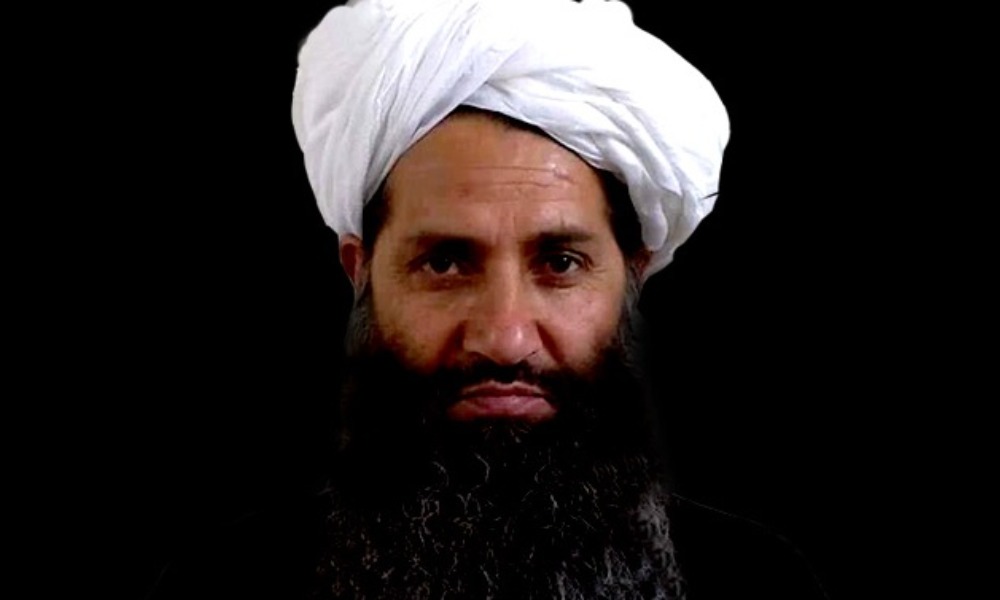
Supreme leader of the Islamic Emirate of Afghanistan (IEA), Mawlawi Hibatullah Akhundzada, congratulated the Afghan people on the occasion of Eid ul-Fitr, calling on them to be strong in their beliefs and not to follow the path of Satan.
In his Eid message, released on Thursday, Mawlawi Hibatullah stated, “Dear Muslim brothers! let us renew our commitment to Allah, the Almighty, and strengthen our resolve to avoid His disobedience and not follow the path of Satan.”
He asked Afghans to thankful to Almighty Allah for security across the country.
“There was a time when on this very day, the funerals of our Afghan brothers were carried out, bombs fell upon us, our homes were searched, and we were dragged into prisons. But now, thanks to Allah, this day has transformed into one of peace and security,” he said.
IEA’s supreme leader reiterated the Islamic Emirate’s resolve to implement Shariah law, instructing courts to ensure judicial rulings adhere strictly to Islamic laws. The message again reiterated that implementing Shariah was a fundamental objective of the Islamic Emirate’s jihad and sacrifices.
On education, Mawlawi Hibatullah said that the educational institutions are tasked with giving serious attention to the correction of beliefs and actions across all educational sectors, aligning their curricula with Sharia, and providing proper training and education to the youth.
Additionally, he cautioned against “harmful propaganda spread by hostile intelligence agencies, who seek to sow despair or create unnecessary concerns about poverty and economic challenges.”
“The Islamic Emirate, with the help of Allah Almighty, is doing all it can to improve your lives.”
Condemnation of Israeli Attacks on Palestine
The IEA leader also strongly condemned the Israeli military strikes against the “oppressed and defenseless” Palestinians as a “great injustice and barbarity.”
“We support the legitimate demands of the Palestinian people and urge the rest of the Islamic world to, as much as possible, support the Palestinians, so they can regain their usurped rights, be freed from the oppression and aggression of the Zionist regime, and put an end to the ongoing atrocities and injustice there,” he said.
-

 International Sports4 days ago
International Sports4 days agoRCB bring fireworks to opening night of IPL 2025
-
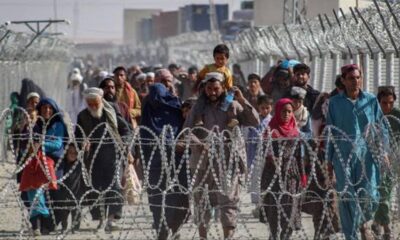
 Latest News4 days ago
Latest News4 days agoTorkham border reopens for pedestrians
-
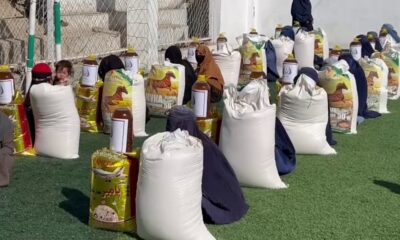
 Latest News4 days ago
Latest News4 days agoBayat Foundation distributes food aid to dozens of needy families in Balkh
-

 International Sports3 days ago
International Sports3 days agoIPL 2025: Sunrisers on a batting rampage; triumph over Rajasthan Royals
-

 Latest News3 days ago
Latest News3 days agoEU says girls’ education crucial for Afghanistan’s long-term prosperity
-

 Business4 days ago
Business4 days agoDeputy PM inaugurates launch of Arghandi Transport Terminal Project in Kabul Province
-

 Sport3 days ago
Sport3 days agoACB names Afghanistan A squad for tri-nation series
-
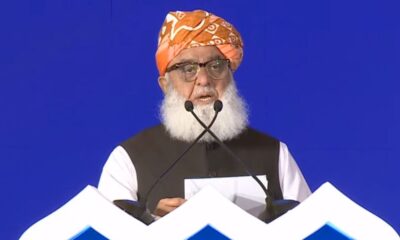
 Latest News4 days ago
Latest News4 days agoPakistan’s mistakes played significant role in rise of terrorism: Maulana Fazl-ur-Rehman
























